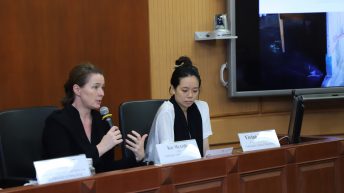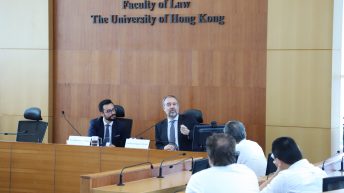Date:08Sep 2017
Brexit through the Lenses of Empire: Reflections on Franchise and Citizenship
The right to vote is at the heart of the notion of citizenship. To understand the premises and implications of Brexit, it is important to explain how the law has regulated suffrage in the referendum. The statutory definition of franchise in the Brexit referendum mirrored the legal position on franchise for general elections in the UK. As such, EU citizens were excluded from voting in the referendum, while Irish and Commonwealth citizens could vote. The issue of franchise illuminates the genealogy and development of British citizenship, which has been historically and legally constructed through the British Empire – and to a great degree remained untouched by the country’s membership to the EU.
Dr Mara Malagodi is a Senior Lecturer in Law at The City Law School, University of London. Mara is a comparative constitutional lawyer with a linguistically-informed specialism in South Asian law and politics, human rights law, legal history, and law & film. She is the author of the monograph Constitutional Nationalism and Legal Exclusion in Nepal (Oxford University Press 2013) and numerous articles and book chapters on constitutional law and history.
The UK Supreme Court, the Constitution and Brexit Sebastian Payne, Senior Lecturer in Law, Kent Law School
After the EU referendum in June 2016 the UK government proposed to use the royal prerogative to leave the EU via Article 50 of the Lisbon Treaty. Gina Miller challenged in court the Government’s right to use an ancient power of the Crown to leave the EU instead of seeking an Act of Parliament. The Supreme Court’s January 2017 judgment (Miller [2017] UKSC 5) involves many key elements of the UK constitution – the Crown, the royal prerogative, parliamentary sovereignty, devolution and conventions. The government lost the case but achieved its plan by other means. Nonetheless, the judgments in this case reveal how the Supreme Court performs as a constitutional court in a common law system without a codified constitution. The paraphernalia of the UK constitution has a medieval quality be it that of the Crown as a corporation sole or the arcane aspects of the royal prerogative. Whereas the EU created a new legal order the analysis in the Miller case of the government’s domestic power to leave the EU is couched in concepts little changed from the 19th century.
Sebastian Payne is President of the United Kingdom Constitutional Law Association and a Senior Lecturer in Public Law at the Kent Law School and a Barrister of the Inner Temple. He is an Associate Fellow of the Royal United Services Institute and the Legal Editor of the RUSI series, Documents on British Foreign and Security Policy. As well as publishing on the law relating to terrorism he is the editor (with Professor Maurice Sunkin) of The Nature of the Crown (Oxford University Press 1999).




